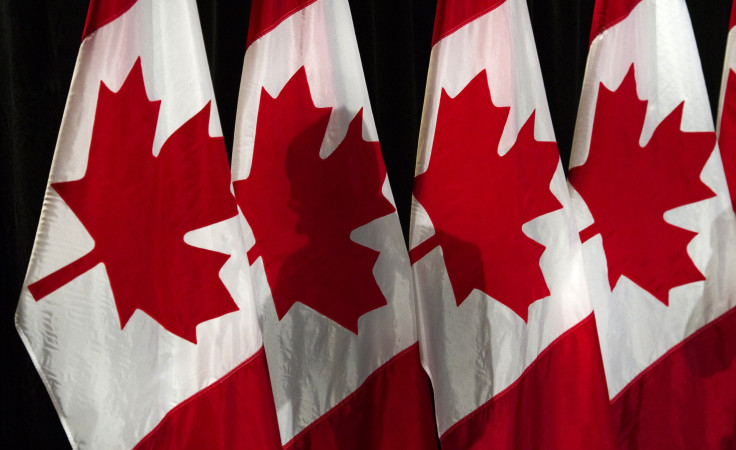North Of The Border: How Canada Views The Battle Between Obama And Romney

With a population about one-ninth that of the United States, Canada lies like a quiet, sleeping giant to the north. Wealthy, democratic, peaceful, diverse, energy-independent and vibrant, Canada is like a slice of Western Europe in North America.
While most Americans scarcely think about Canada, the Dominion is heavily trade-dependent on its colossus to the south and is keenly observing the contentious presidential race between incumbent Democrat Barack Obama and Republican challenger Mitt Romney.
International Business Times spoke with a Canadian academic to discuss how the public and media of his vast nation view the 2012 U.S. Presidential campaign.
Dr. George A. MacLean is Associate Dean, Faculty of Graduate Studies, and Professor, Department of Political Studies at the University of Manitoba.
IB TIMES: Do the Canadian media and public in general take a great interest in the U.S. presidential campaign?
MACLEAN: Yes, there is great interest indeed. Some might suggest that the U.S. presidential elections get more attention in Canada than Canadian federal elections! And for good reason: the U.S. is our closest neighbor, a crucial military ally, our largest trading partner, as well as having close cultural and social links, etc.
It is, quite simply, "front page news" especially as we get closer to the election date.
IB TIMES: What about the 2012 race between Obama and Romney? Is the election getting especially heavy coverage in Canadian media?
MACLEAN: Yes, especially given how close the race appears to be. The national newspapers have detailed analysis of the campaign daily.
Canadian TV networks did not broadcast the debates, but all the U.S. affiliates did, and a large number of Canadians watch the debates. Indeed, a large percentage of my first-year political science students watched the debates, and we discussed them the day after in class.
IB TIMES: Which candidate would most Canadians prefer to see win?
MACLEAN: Overwhelmingly, they want Obama. Polls suggest that if Canadians could vote in the U.S. election, about two-thirds would cast their ballots for the current president.
Romney's support is much lower -- even in the conservative province of Alberta, Obama outpaces Romney.
IB TIMES: How did Canadians view the election of Obama in 2008?
MACLEAN: Very positively. The George W. Bush years were widely considered a dark period in U.S. politics here in Canada, particularly with respect to foreign policy – indeed, the 'Bush doctrine' was viewed with skepticism and worry.
IB TIMES: In contrast to the U.S., Canada has three major political parties, the Conservative, the New Democratic and the Liberal, and many smaller parties. Are the Conservatives sympathetic to the Republicans in the U.S.? Or do they disagree with many of its platforms?
MACLEAN: Generally, the Conservatives and the Republicans may be seen as more closely connected.
The Conservative party in Canada is more right-wing today than its forebear, the Progressive Conservative party (from the 1980s era of former Prime Minister Brian Mulroney). In some ways the right wing of the Conservatives mirror the right-leaning tendencies of the Republicans. However, the tea party faction within the Republican camp is further to the right than the Canadian Conservative party.
IB TIMES: Similarly, are the New Democratic and Liberal parties in Canada ideologically similar to the Democrats in the U.S.?
MACLEAN: If you lined up all the parties -- U.S. and Canadian -- along a spectrum, then yes, the closest connection would be along these lines. Ideologically, I would arrange the parties this way (from left to right): New Democratic Party ... Liberal Party ... Democratic Party ... Conservative Party ... Republican Party.
IB TIMES: Has the Prime Minister of Canada, the Conservative Party's Stephen Harper, indicated which candidate he would favor? Or is he prohibited from commenting on foreign political affairs?
MACLEAN: He has not indicated which he would prefer (which is a safe approach). He would not be "prohibited" from making a preference known, but were he to do so, he would likely be criticized by Canadian media and citizens.
The Canadian political tradition has been to stand on the sidelines and observe -- there's too much at stake to risk alienating any future U.S. president.
IB TIMES: What “stake” does Canada have in the U.S. presidential race? Why does it matter to the average Canadian who gains the White House? Might one candidate be more attractive in terms of trade, economic or defense ties?
MACLEAN: It does matter. Most Canadians' real interests are met through congressional connections, because that's where a lot of the actual political action takes place, but it's crucial to have an "ally" in the White House.
Think, for instance, about how Obama exempted Canada from the "Buy U.S." approach during the economic downturn, or -- on the other hand -- how his decision to hold off on the Keystone XL pipeline affected Canadian economic interests.
Decisions by the U.S. president can have a real effect upon Canada -- other examples include passport laws, soft wood lumber and automobile subsidies; these all impact Canadian GDP.
It also matters in another way, too, which is what I'd call the Canadian “aspiration” for America. Canada sees its closest neighbor as its most important friend in the global environment, and it's accurate to say that a majority of Canadians looked at Bush’s foreign policy with disappointment.
Obama, despite his failures, has been seen in the context of possibility, hope and rebuilding in Canada.
However, there's no clear sense that either candidate would be more detrimental to Canadian economic, military or political affairs, given the difficult environment either will face as president in January 2013. Regardless of who wins, I'm certain that NORAD, NATO and NAFTA will remain in place in 2017. I also predict Canada will be a major trade partner of the U.S., but I suspect we'll drop to second place after China by then.
© Copyright IBTimes 2024. All rights reserved.











